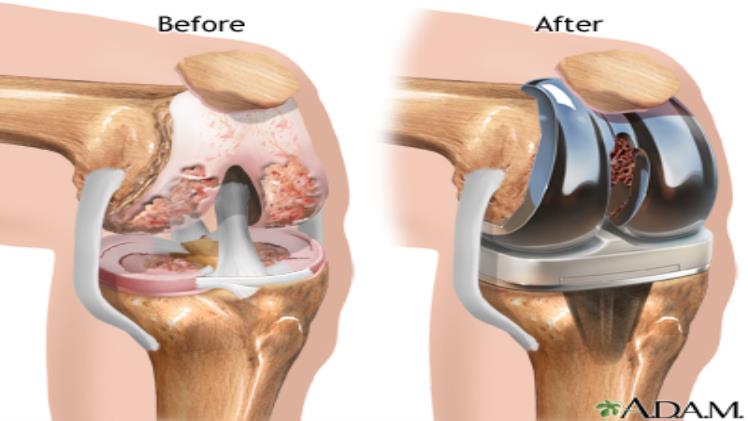Learn About the Risks of Knee Replacement Surgery

Excessive knee joint pain can disrupt your life because of reduced mobility and other associated challenges. You may visit a regular primary care provider for medical assistance, and after checking your health, they may recommend knee replacement is the only solution. Since it’s surgery, you are likely to hesitate or immediately agree to it because of how much pain and suffering you have been dealing with your knee pain. Any knee replacement surgery involves doing away with damaged or tired knee joint surfaces to fit artificial implants. Doctors recommend this option for severe pain and disability caused by advanced knee arthritis.
The patient remains under the influence of general anesthesia during the surgery, which may take about two hours. You also need to know that the implants can be plastic or metal material. You may have to stay in the hospital for recovery. You may also need physical therapies to build strength back into your knee to improve its motion. Does this sound overwhelming? You don’t have to choose this today because you have a choice – take regenerative medicine. You can visit a Round Rock Pain control clinic that provides help with this new technique. You don’t need surgery, as their comprehensive knee treatments can care for everything. Do you wonder why you should think about the alternative path? The answer is pretty simple. An expensive knee replacement surgery is neither full-proof nor risk-free.
Risks of knee replacement surgery
Infection
This major operation carries a risk of infection that can occur at the incision site or develop in the joint itself. Infections can be severe, requiring additional surgery to manage them. In some cases, the doctor may replace the infected joint. Although infection is a potential complication of any surgery, it is more familiar with this surgery type. Some warning signs of infection include fever, chills, leakage at the operated site, inflammation, etc.
Blood clotting in lungs and leg vein
One of the severe complications is the blood clots that can affect your veins in the leg or lungs. Interrupted blood circulation can damage your organ due to the lack of proper oxygen supply. The medical terms for the blood clots in the legs and lungs are deep vein thrombosis (DVT) and pulmonary embolism (PE), respectively. If you become susceptible to DVT, your legs will show redness, pain, and swelling. In the other case, you can experience increased heartbeats, painful chest conditions, and breathing difficulty. You would need immediate medical intervention to deal with these issues. The doctors can advise anticoagulants for treatment.
Nerve damage
During surgery, a few things can go wrong. For example, the surgeon may, by mistake, operate on the side nerves of the knee, or those can get damaged. It can numb your legs or cause a tingling sensation apart from other things. In some cases, damaged nerves can be irreparable.
While knee replacement surgeries have improved, you cannot ignore these and other risks that can be physically, mentally, and financially draining. If you wish to avoid this altogether, regenerative medicine can be the safer way.




